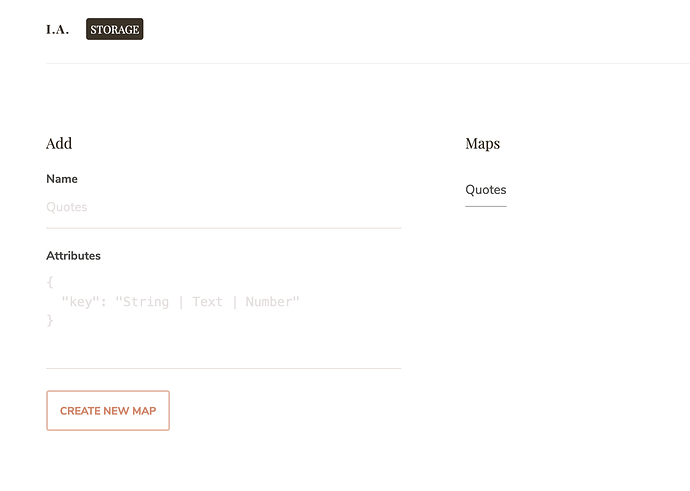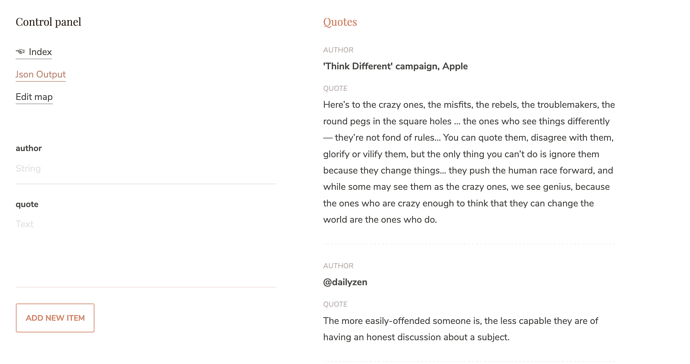I’m not sure this idea would be viable or useful, but here goes.
I currently have this app that’s essentially a “generic frontend” for a database with an API. For example, in this generic frontend I can make a table called quotes with two columns named quote and author. After I created that table, I can use said app to add data into the database using a standard form.
Now, the key bit here is that this database has an API, which other apps can use to get data out of the database. For example, I have a quotes app which uses that API to get the data and visualise it in a specific way. Check out the link for an example of what this looks like.
I’ve been thinking about how I could do this with IPFS. I guess I could just replace the database with IPFS and then IPFS itself is the API  Anyhow, what do you think about this? Does this sound useful at all to you? Should I store my quotes in something totally different?
Anyhow, what do you think about this? Does this sound useful at all to you? Should I store my quotes in something totally different?



